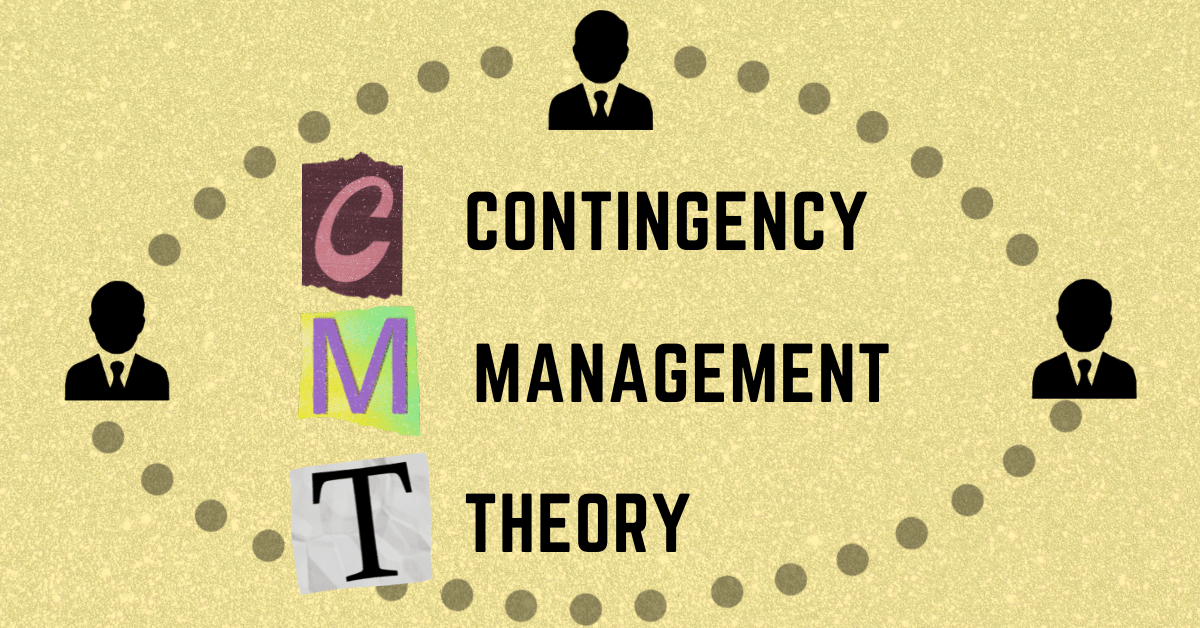Contingency management theory states that the best way to lead a corporation depends on the external and internal situation. The word Contingent means “dependent.”
Back in the 1960s, Professor Fred Fiedler developed the contingency theory. After studying various leaders in different contexts, Fred Fiedler proposed this theory.
In this article, we will work out how it helps managers. Before getting into the nitty-gritty of our topic, let’s first understand some of the basics of this theory. Fiedler divides the leaders into two groups:
- Task-oriented
- People-oriented
To understand better, let us go through the main ideas of the contingency theory of management, which are:
- Organizations require careful administration and balanced internal requirements.
- The appropriate way to lead depends on the nature of the work or the environment.
- Management must be concerned about aligning the organization and its environment.
- There is a need for different types of management in various settings.
- There is a requirement for different types of control for multiple domains.
Indeed, management depends on the situation.
Quick write-up -> “How does Contingency Management Theory help managers.“
This theory sets the organizing and management standards. The contingency management theory has been a reliable source of guidance for management and leadership roles.
In this discussion, let us go through the details of this theory.
How does Contingency management theory help managers?
Training is the primary help provided by the contingency theory of management to the managers. This theory shows them a pathway to being successful managers. It also provides the basics of management and training.
Contingency Management Theory can help managers diagnose the solution in specific circumstances and define the management strategy. Furthermore, it allows them to solve problems according to the situation. It helps them to improve productivity and employee morale. Moreover, it will make them alert to the situation.
Strategic Planning to help managers
Strategic planning or driving strategies to manage is one of the critical elements of managing the organization. The contingency management theory can help managers with all the details to make a strategy. As explained, the method of implementation is according to the situation. In contrast, they avoid the traditions and policies to improve productivity. With the contingent approach, managers can draw an efficient strategy.
For example: Consider a sales manager drawing up a product marketing strategy. He can draw a more realistic and efficient marketing strategy with the contingent approach. And emphasize and sell better, all according to the situation of the market and organization.
Efficient Solutions for specific situations
With this theory’s help, the manager can respond to the real cause of the problem. He can understand all influences that led to the problem due to his alertness to the situation. The contingent approach helps managers to achieve a productive solution.
For instance: A restaurant manager is dealing with the problem of decreasing efficiency. With a contingent approach, he realizes that the lack of proper ventilation causes the chef to tire quickly. In other words, he restores efficiency with a contingent process.
Provides a macro-view of the organization
The contingency management theory also stretches managers thinking about decisions and their consequences. It can also help managers to draw the strategy and solve problems based on how they will impact the company.
For example: Consider a manager who finds some problem in any unit. A manager with a contingent approach would keep this problem private. Instead, he works closely with a faulty unit to find the cause and solve the problem.
Increased Discretion
The contingency theory of management can help managers with greater discretion. Since the contingent approach gives the manager different ways to react to problems, it provides meaningful choices in decision-making. This type of freedom results in increased confidence in managers, aiding in their better decision-making. The approach overall increases productivity in the organization.
For example, if a Warehouse manager has to deal with the issue of lack of efficiency of workers. With the contingent approach, the manager has the freedom to make a decision irrespective of any tradition. As a result, decisions made will prove more productive.
Related link -> Five (5) noteworthy Strategies used to Negotiate
What is Important, Skills or Degree?
Conclusion
The contingent theory of management significantly impacts managers worldwide and is increasing daily. To sum up, it alerts managers to all happenings of the organization and guides them to manage issues better.
For short writeups on different topics, you can visit our Blogs & Write-ups section.
For short posts on different articles, you can visit our Instagram page: @trainthelearner
[This article is written by Ali Hussain Haider during Train the Learner’s 4 weeks Training Program as an Article Writer]




